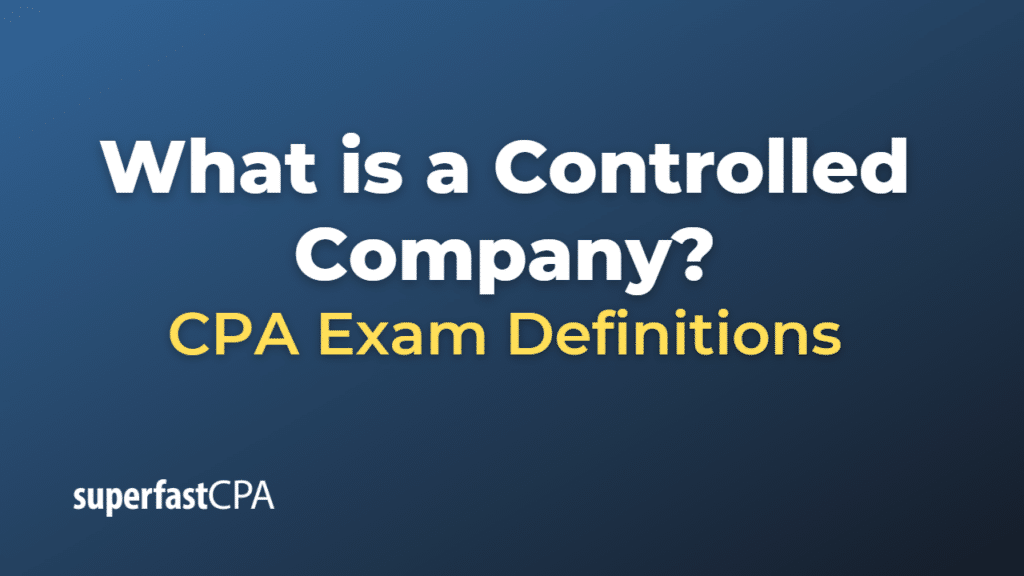Controlled Company
A controlled company is a corporation in which a single shareholder or a small group of shareholders, often including family members or closely related entities, holds a significant majority of the voting power or ownership interest. In this situation, the controlling shareholder(s) can effectively determine the outcome of decisions requiring shareholder approval, influence the company’s strategic direction, and appoint or remove members of the board of directors.
In a controlled company, the controlling shareholder(s) typically holds more than 50% of the voting shares, although the threshold may vary depending on the specific governance structure and the distribution of shares among other shareholders. Controlled companies can be publicly traded or privately held.
While controlled companies can benefit from a unified vision and the ability to make quick decisions, there are potential downsides to this structure as well. For example, the interests of the controlling shareholder(s) may not always align with those of minority shareholders, leading to potential conflicts of interest. Additionally, the controlling shareholder(s) may exert significant influence over the board of directors, which could compromise the board’s independence and effectiveness in its oversight role.
Many stock exchanges and jurisdictions have specific corporate governance requirements for controlled companies to address these concerns, such as requiring a certain number of independent directors on the board or implementing additional disclosure requirements related to the controlling shareholder(s).
Example of a Controlled Company
A well-known example of a controlled company is Facebook, Inc. (now known as Meta Platforms, Inc.). Facebook’s founder and CEO, Mark Zuckerberg, held a significant majority of the voting power in the company through his ownership of Class B shares, which have 10 votes per share, as opposed to Class A shares, which have only one vote per share.
Zuckerberg’s control over Facebook has allowed him to drive the company’s strategic vision, make quick decisions, and maintain a consistent direction. However, it has also raised concerns about the potential for conflicts of interest between his interests and those of other shareholders, as well as the independence of the board of directors.
To address such concerns and comply with applicable corporate governance requirements, Facebook has taken steps to ensure a level of independence on its board, such as appointing independent directors and maintaining board committees composed of independent members. However, the company’s controlled structure remains a subject of discussion and scrutiny among investors, regulators, and corporate governance experts.
It’s important to note that the information provided is accurate as of September 2021 and might not reflect the current situation. Please refer to up-to-date sources for the latest information on Facebook’s ownership structure and corporate governance practices.













